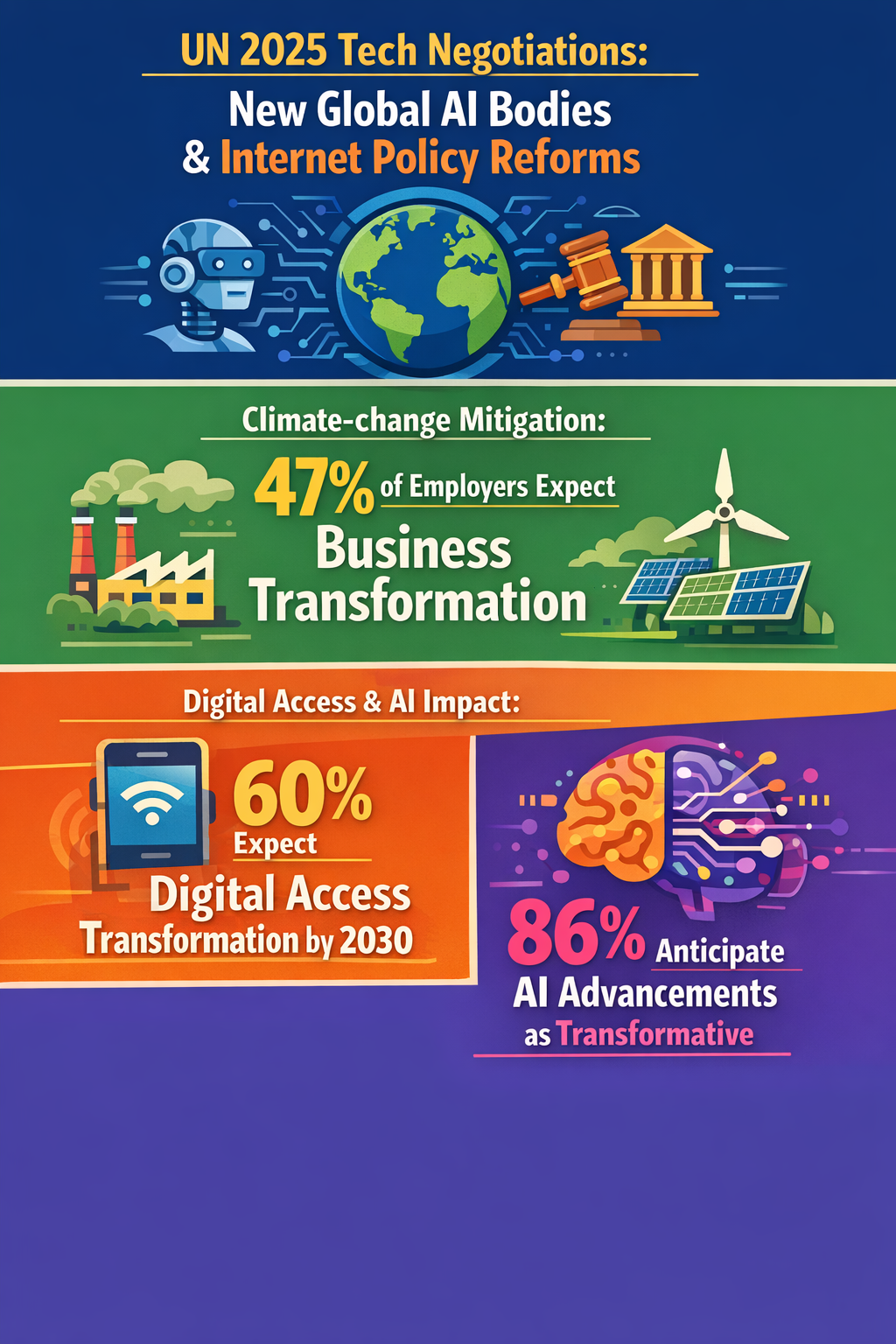Global Scans
·
Digital Transformation
·
Intelligence Briefing

Intelligence Briefing about Digital Transformation
Critical Trends Impacting the Organization
- AI-Driven Economic Growth: AI agents are projected to catalyze an exponential increase in AI-mediated consumer revenue, growing up to 105% annually and reaching $900 billion by 2030 (ZDNet).
- Workplace Transformation through AI and Digital Access: By 2030, 60% of employers expect expanded digital access and 86% foresee AI advancements reshaping business operations and workflows (GINI Talent).
- Climate-Change Mitigation as a Driver of Digital Integration: Nearly half of employers (47%) identify climate trends as a transformative force affecting business strategies within five years (Medium).
- AI Agents Automating Complex Workplace Tasks: Advanced AI workers are expected to autonomously handle complex responsibilities by 2025, fundamentally altering labor dynamics (Economic Times).
- Regulated Digital Integration in Healthcare: The complete implementation of the Prescription Drug Use-Related Software (PDURS) framework by the FDA in 2025 will significantly enhance pharma digital integration (S3 Connected Health).
Key Challenges, Opportunities, and Potential Risks
- Challenges: Ensuring ethical AI deployment, managing workforce displacement, safeguarding data privacy, and integrating climate resilience considerations.
- Opportunities: Accelerated innovation and revenue growth, enhanced operational efficiency through AI agents, expanded digital inclusion, and strengthened sustainability practices.
- Risks: Regulatory uncertainty around emerging AI technologies, increased cybersecurity vulnerabilities, potential digital divide exacerbation, and climate-related operational disruptions.
Scenario Development
- Best-Case Scenario: Seamless AI adoption drives unparalleled productivity and revenue growth; digital access is universal; regulatory frameworks effectively balance innovation and ethics; climate-conscious digital strategies position the organization as a market leader.
- Moderate Growth Scenario: AI adoption improves business processes but is uneven; digital access gaps persist; regulatory challenges slow implementation; climate trends require adaptive but manageable operational adjustments.
- Disruptive Challenges Scenario: Rapid AI deployment faces significant ethical and regulatory pushback; digital inequities deepen; climate impacts disrupt supply chains; workforce displacement triggers social and operational instability.
- Worst-Case Scenario: AI technologies are poorly regulated, leading to crises in privacy and trust; digital infrastructure fails to expand inclusively; climate-related disasters cause widespread disruption; organizational resilience is severely compromised.
Strategic Questions
- How can the organization ethically and effectively integrate AI agents to maximize value while minimizing workforce and societal risks?
- What strategies could be implemented to ensure equitable digital access and prevent widening of the digital divide?
- In what ways can climate-change mitigation be embedded into digital transformation initiatives to enhance long-term sustainability?
- How might regulatory developments affect the pace and scope of digital innovation, and how can the organization prepare?
- What measures could be employed to strengthen data privacy and cybersecurity in increasingly AI-mediated operations?
Actionable Insights for Strategic Decision-Making
- The organization could prioritize investments in AI literacy and ethical frameworks to foster responsible adoption of AI agents.
- Developing partnerships that expand digital infrastructure could enable broader access and inclusion.
- Embedding climate considerations into product design and operational planning could enhance resilience and stakeholder trust.
- Proactively engaging with regulators could help shape favorable, clear guidelines supporting innovation and compliance.
- Implementing robust cybersecurity protocols could mitigate risks emerging from increased AI and digital system integration.
Briefing Created: 01/02/2026